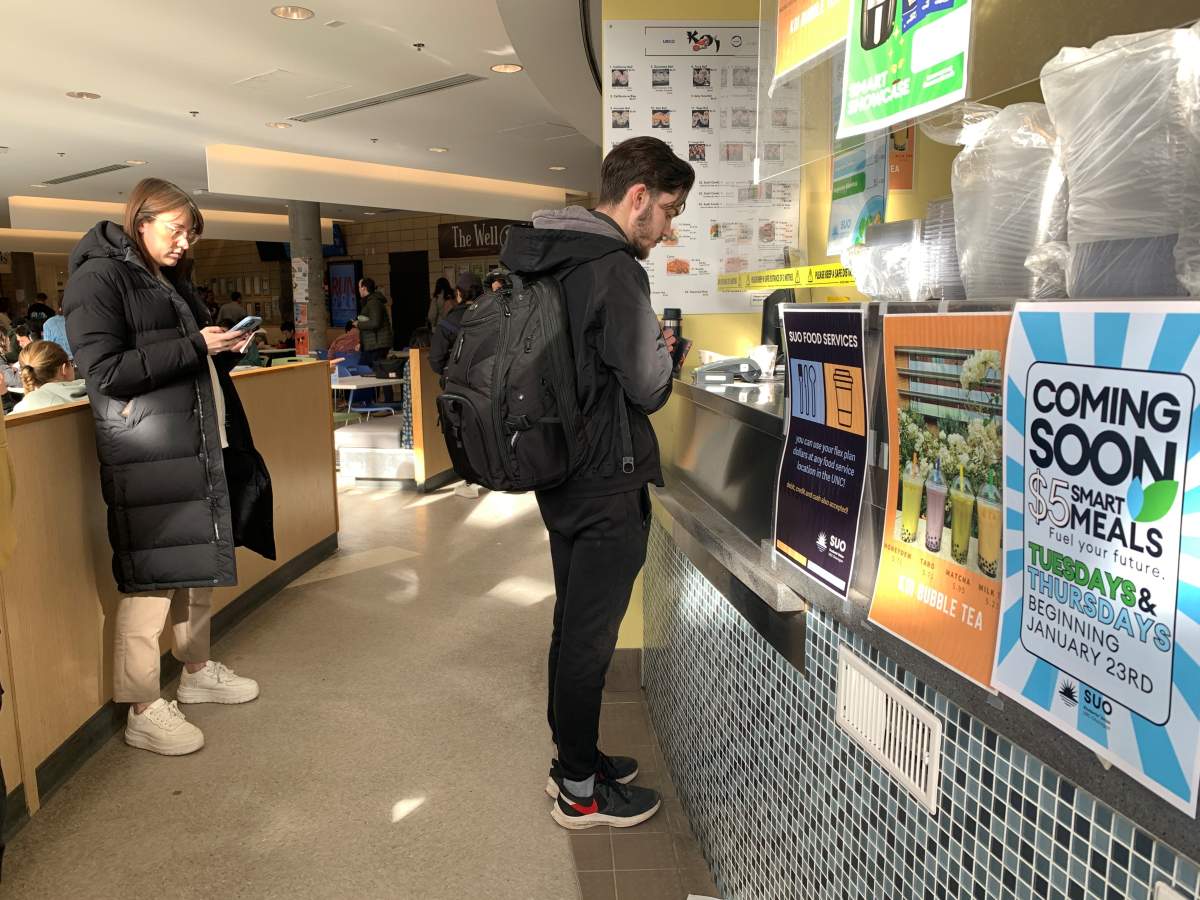With the cost of food soaring these days, many are struggling with food insecurity.

That includes an alarming number of post-secondary students in the Okanagan, according to a recent survey done at the UBC Okanagan campus through the health department.
“That research focuses on food security and the results of that research say that around 42 per cent of undergraduate students are food insecure, or experienced some sort of food insecurity on campus,” said Lakshay Karnwal, the student’s union vice-president external.
“We don’t even necessarily have the data for graduate students…. The numbers could be even higher.”
Karnwal played an instrumental role in establishing the $5 smart meal program at the university to help students who are food insecure.
“A student who might not be able to pay for a meal, a student who might skip a meal because they’re not able to afford a meal,” Karnwal said.
The program launched at the start of the academic year to help students navigate the tough economic times.
“As far as what I know, we are the only, if not the very few universities in Canada who are doing a program and initiative like this,” Karnwal said. “We are really taking up that space of pioneering a campaign like this.”

The campaign is a partnership between the students’ union and four participating on-campus restaurants.

Get daily National news
The restaurants provide several $5 meals, which are subsidized by the students’ union.
“We have received so much feedback that a campaign like this has impacted them so much, especially in the second term right now when the students start exhausting their pockets and in the second term they face a lot more of these hardships, which sometimes means taking up an extra job while they have the same course load,” Karnwal told Global News.
When the program started, the smart meals were only being offered once a week but have since expanded to twice a week.
“It’s literally a third of the price compared to all the other meals, so, yeah, it makes a difference,” third-year student Jake Barclay said.
“I think they’re great because since I moved to this country all I can think is wowm food is expensive,” said first-year student Tariq Wadi, who moved to Canada from Dubai.
Those who run the on-campus food bank food say food insecurity among students is on the rise.
“The foot traffic itself in our food bank has probably doubled, doubled within a year,” said Stephanie Patterson, a student’s union employee who manages the food bank.
Called The Pantry, the university’s food bank hands out 30 or so hampers to students every week.
“Students have the same problems that families or seniors have,” Patterson said. “A lot of people think that because they’re coming to university, they have a lot of money. It’s not the case. A lot of the time, an entire student’s income will go to their tuition or to their books.”
Since the program’s inception, more than 3,500 $5 smart meals have been purchased and subsidized.









Comments
Want to discuss? Please read our Commenting Policy first.